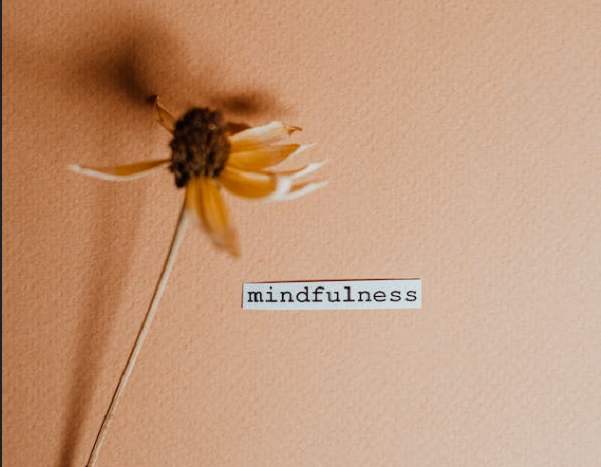

Ubcodes
Mindfulness : Emotional dysregulation, Intensity and Avoidance
Hi there! 🙂👋🏽...today's discussion cuts close to the bones. I'm going to share things that have worked for me and others. Observe and see how to work through your emotions if any of this is in similitude with your experience. Pay attention, Learn and practice and get better 🫂.
Life can be quite a rollercoaster ride, filled with ups and downs that often leave us overwhelmed by our emotions. During these challenging moments, we realize just how complex and conflicting our feelings can be. I see mindfulness as an essential tool to navigate these emotions.
The Power of Mindfulness
The word mindfulness seems casual, but it has the potential to transform our relationship with our minds and emotions. It is learning to observe your thoughts and feelings without being overwhelmed by them. It lets us create a safe space within ourselves. You'd learn to embrace your emotions with compassion and understanding.
Why mindfulness?
The practice of mindfulness helps people in severe distress be it physical or emotional, it could help suicidal people suffering from intense emotional distress. Mindfulness has a way of settling the difference between a chaotic, emotion-driven life and a focused, intentional one. It increases our distress tolerance, emotion regulation, and interpersonal capabilities.
What is mindfulness?
Mindfulness is intentionally focusing on the present moment and accepting what is in that moment without evaluating it as good or bad. We can be mindful for a few moments, most of the day, weeks, days, or years at a time. I do not claim to have attained it but bit by bit and this is being put into practice things get better.
Navigating Complex Emotions:
One of the biggest challenges we face is managing intense emotions. It's like trying to tame a wild, untamed beast wild, untamed beast within us. The voices, the urge to just make everything stop, the urge to escape, the anger when strong emotions hang around for days, even weeks, and make you feel bad. Mindfulness equips us with the skills to tame our emotions. It's by honing our emotions, we take our time to identify the triggers that set off these emotions and learn to respond to them in a more balanced and grounded way.
Emotion Dyresgulation
What is emotional dysregulation?
Emotional dysregulation occurs when there are difficulties in managing and regulating your emotions. It is noticed when experiencing intense emotions that are difficult to control or manage. It leads to emotional instability and potential negative consequences in various areas of life. It shows itself in intense emotional reactions, difficulty in emotional expression, impulsivity, mood swings, and relationship difficulty.
How emotional dysregulation manifests
▸Do you feel like your emotions often cause problems for you, especially in your relationships?
▸Have people consistently told you that you are too sensitive?
▸Do your emotions interfere with your thinking?
▸Because of your emotions and emotional behavior do you ever wonder who you are?
▸When you feel negative emotions, are the sensations in your body so strong and unpleasant that sometimes you feel you would do anything to make the sensations go away—even hurt yourself?
▸Do strong emotions hang around for days, even weeks, making you feel bad?
▸Have emotional situations made you wish you wish you were dead?
If you answer yes to many of these questions, chances are you experience emotion dysregulation. I had also answered yes to many of these questions—you're not alone.
How mindfulness help
Researchers have studied how mindfulness can lead to a reduction in people's experience of pain and improve our ability to cope with a variety of problems, including depression, chronic pain, and addiction.
Mindfulness brings to our attention the present moment and helps us focus on the real moment. If you've battled such as substance abuse, eating disorders, or self-harm you'd notice that strong emotions produce powerful urges to act before you think. Pausing to recognize that we have a choice about how to act, rather than being slaves to our emotions and urges is where mindfulness comes to play. Mindfulness also helps to become calmer and feel more grounded. When we are in the grip of our emotions we never feel grounded.
Emotional Intensity
What is Emotional Intensity?
This is when we experience excruciating body sensations associated with emotions and the sense that is impossible to resist the "action urge" of that emotion.
Emotional Intensity can be overwhelming. Speaking from experience—it makes it difficult to think clearly or in a balanced manner. Times like this seem to take control, and we feel helpless.
Applying mindfulness to emotional intensity?
It is important that we consciously direct our attention to the sensations and experiences that we feel. Develop observing your emotions without attachment or resistance. I would often ask myself as though I was another person —"how do you feel?", "Why was that a trigger?", "Why should you yield", "Why shouldn't you yield?", and "Why was that statement he/she made sensitive?", these questions are also questions asked in therapy. The whole aim I to keep you aware of your emotions without being overwhelmed by their intensity.
• Mindfulness gives us a non-judgemental approach to our emotions. As mentioned earlier in the definition of mindfulness, instead of labeling an emotion as negative or positive, we simply acknowledge how we feel. It simply allows our emotions to flow through us without clinging to them or pushing them away.
• Mindfulness helps us to build emotional resilience by teaching us to ride the waves of our emotions. In the beginning, periods as I was learning to manage my emotions, one of the initial concepts I had to consciously think about was that our emotions are like waves. Sometimes it comes in its high tides, but sooner or later it settles. Rather than suppressing or avoiding intense feelings, we learn to lean into them and explore their underlying causes. By investigating the roots of our emotions with compassionate curiosity, we gain insight into our triggers and develop strategies to respond to them in healthier ways.
• In practicing, you'd learn to focus and endure until the intensity passes. After just a few moments it does, trust me. Then you can choose what to do.
Emotional Avoidance
I think I was really good that this one. Always looking for an escape. It is natural to seek comfort and avoid unpleasant emotions. However, emotional avoidance may inadvertently prolong our suffering and hinder our personal growth.
What is emotional avoidance?
Emotional avoidance is simply suppressing, ignoring, or numbing ourselves to uncomfortable emotions. We often believe that by pushing these feelings away, we can protect ourselves from pain. The truth is that emotional avoidance leads to long-term consequences, such as increased anxiety, depression, and difficulty forming meaningful connections with others.
Applying mindfulness to emotional avoidance?
Iterating this again, mindfulness here is observing our emotions with gentle curiosity, rather than getting entangled and acting impulsively. Being mindful enables us to develop a deeper understanding of our emotional patterns, triggers, and underlying needs, empowering us to make conscious choices in responding to our emotions. As mentioned earlier, try asking yourself questions concerning how you feel.
So basically, recognize your bodily sensations and emotions, especially before, during, and after acting on your urges.
One of the things I'd advise to do which I also implement, is to know when I am vulnerable and take steps to protect myself. Even when there are urges to escape uncomfortable feelings, I have learned to accept them. It feels good to know that you have control.

Ubcodes
Hi there, I am Etop-Essien Emmanuella Ubokabasi. Welcome to my blog, where I share my insights and tips on web development, mental health, and books. Whether you are a beginner or an expert, a reader or a writer, a coder or a therapist, you will find something useful and interesting here. I am passionate about web development and drumming with a keen interest in topics related to mental health, books, and knowledge. As a developer, I share insightful topics, development tips, and tutorials to inspire personal growth and empower others to grow in their careers. With a desire to be and make a positive impact, I enjoy exploring ways to promote positive mental health, discussing books, and sharing knowledge with others. I hope to inspire you to pursue your passions, learn new things, and care for your mental health.
